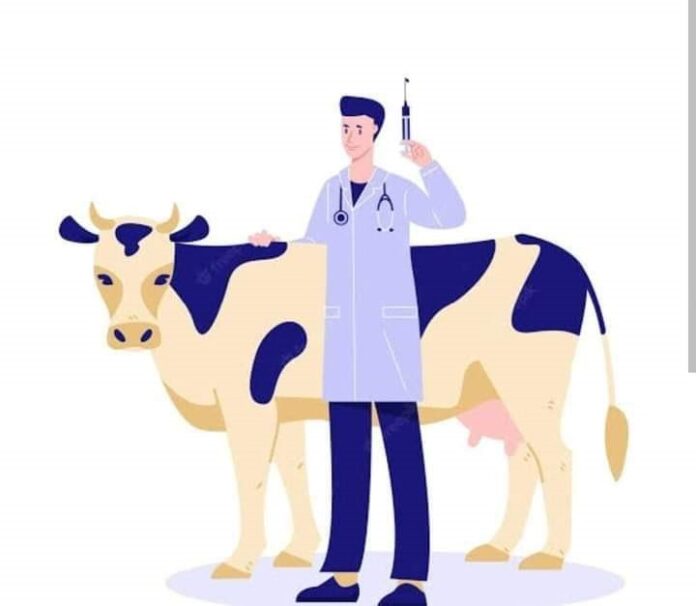Iodine Deficiency in Goats and its Prevention and Control
Iodine deficiency in goats
A severe deficiency of iodine causes a lack of essential thyroid hormone production and the thyroid gland enlarges. The enlarged thyroid gland is called goitre. The swelling occurs in the throat area and can be as large as an orange. Goitre is mainly a disease of lambs and kids, it rarely occurs in calves. Goats have a higher requirement for iodine than other livestock.It either interfere with iodine uptake by the thyroid gland or with normal synthesis of thyroid hormones (goitrogens). Iodine deficiency typically results in enlargement of the thyroid glands (goiter). The thyroid glands are located in the upper ventral neck on the trachea and produce thyroid hormone, important for controlling metabolism.
Goiter may be seen in animals sourced from high rainfall areas where there are iodine deficient soils, with elevated risk often following high rainfall in the autumn or winter. Goiter may also be seen in animals that have recently grazed certain white clover pastures or brassica crops that were high in goitrogens.
Iodine deficiency is common in animals which are grazed in areas with low soil iodine levels. Goats are particularly sensitive to iodine levels, and in areas of known low soil levels, routine supplementation should be established. This supplementation could be by feeding or providing appropriate salt licks. Some keepers choose to take a more active approach and drench all animals with a solution of 2% potassium iodide at a rate of 10mls per 20kg. The particularly important periods within the breeding cycle are:
- 4 weeks prior to mating
- 6-8 weeks prior to kidding
- 2 weeks after kidding
The requirement for iodine
The thyroid gland requires iodine to produce thyroxine, which is implicated in growth and development of animals both before and after birth. Thyroxine is not transferred across the placenta, and the thyroid gland of a fetus is responsible for adequate production of thyroxine from around half way through gestation. In the absence of sufficient iodine, the thyroid gland is continually stimulated to produce thyroxine which it cannot due to the lack of the vital ingredient. The stimulating hormone (Thyroid Stimulating Hormone, TSH) eventually causes a functional change in the thyroid tissue and the gland enlarges.
Iodine Deficiency
The classic appearance of iodine deficiency in a herd is the production of weak, poor growing kids, with a sparse hair coat. These animals may or may not have an enlargement of the thyroid glands (goitre). If swelling of the neck is seen in a well-growing healthy kid, then Milk Goitre should be considered. True goitre can be difficult to detect until it is advanced, since the thyroid glands sit behind the larynx. Milk goitre appears in front of and on both sides of the larynx.
Iodine toxicity
High levels of iodine will also cause a swelling of the thyroid glands. These animals are hyperthyroid. The goitre is the result of hormone synthesis blockage by excess iodine uptake (called the Wolff-Chaikoff effect). The fetal thyroid gland is very sensitive to high levels of iodine and kids born to does with high levels are born with obvious thyroid swellings.
Compiled & Shared by- This paper is a compilation of groupwork provided by the
Team, LITD (Livestock Institute of Training & Development)
Image-Courtesy-Google
Reference-On Request.
Iodine Deficiency in Goats and its Prevention and Control
IODINE DEFICIENCY IN GOAT FINAL




